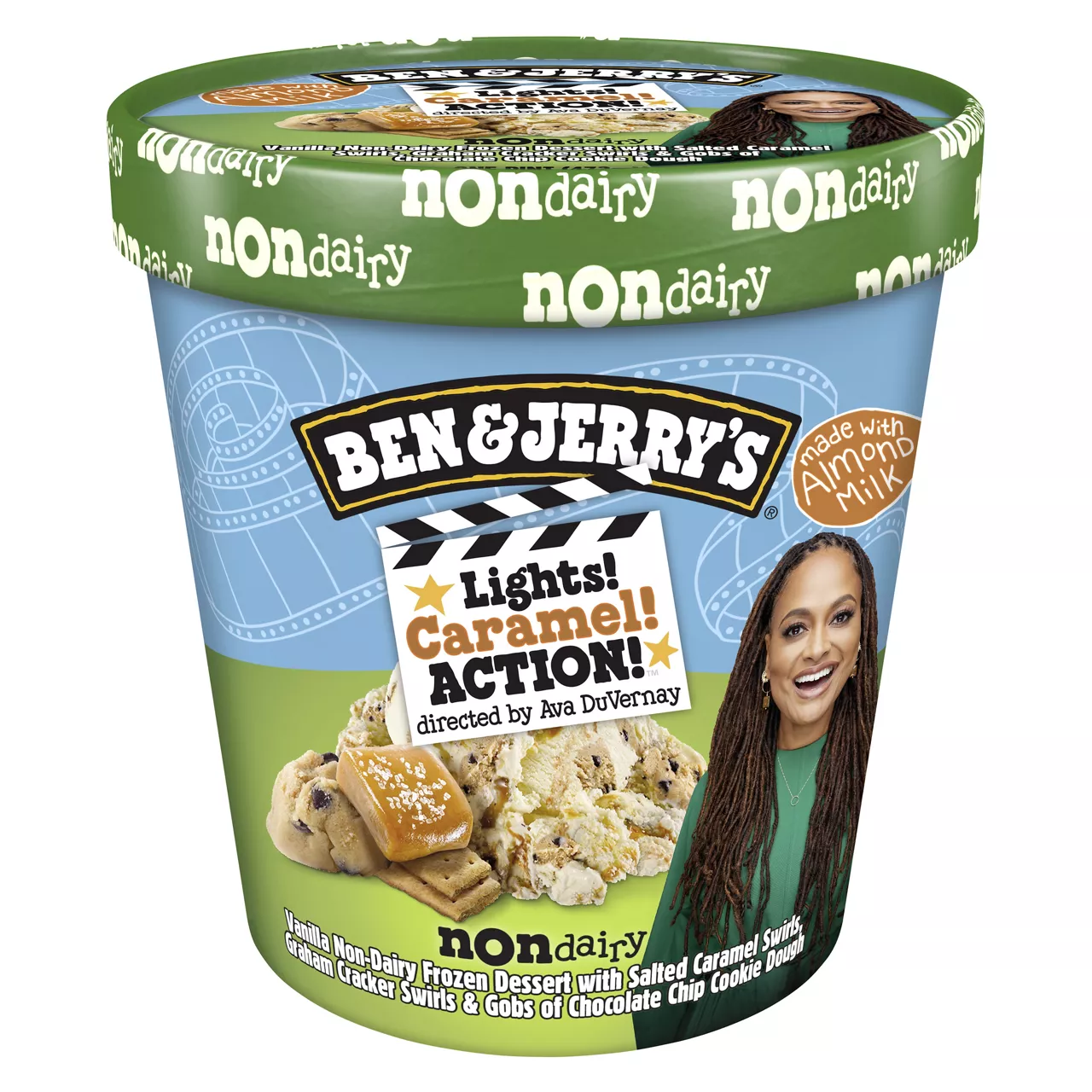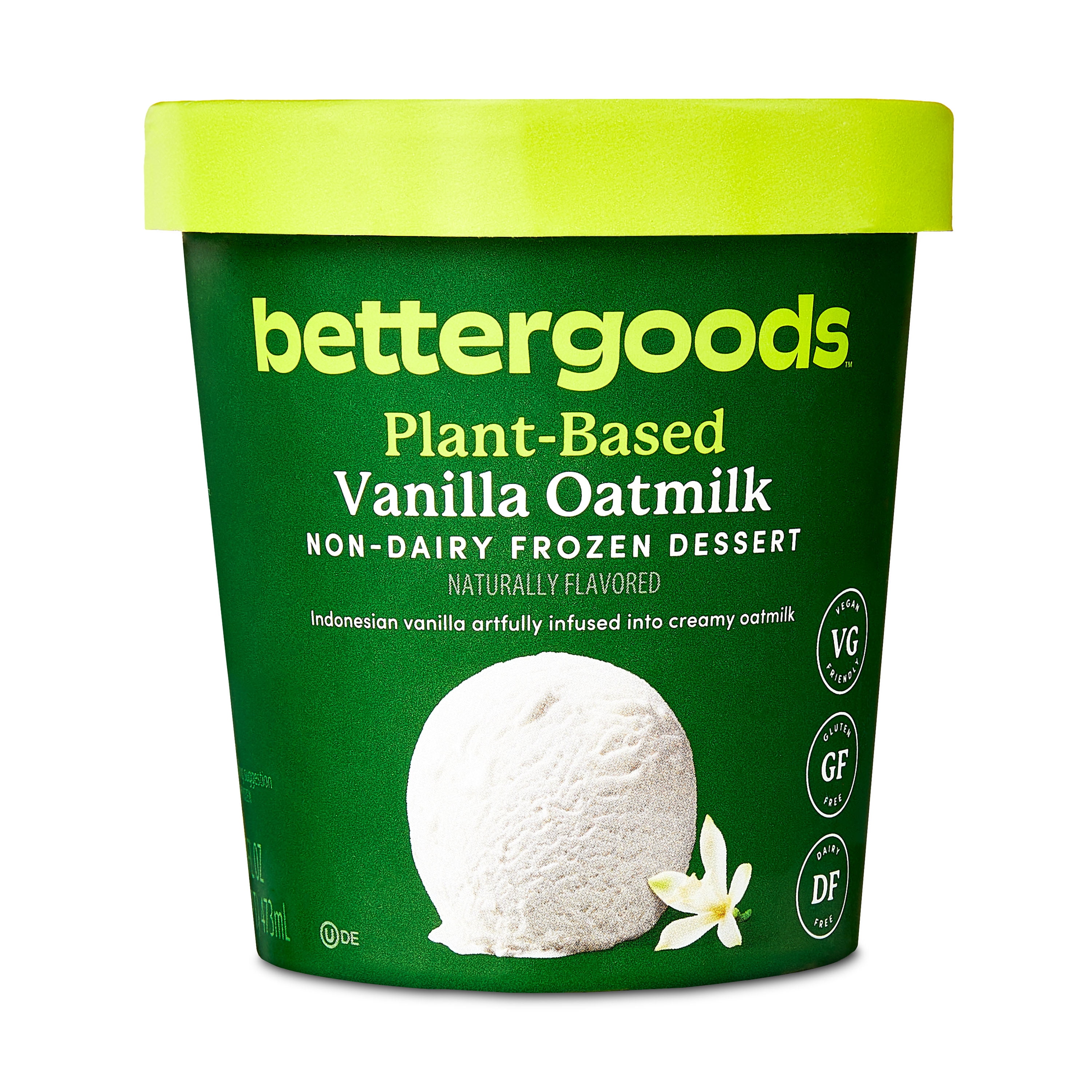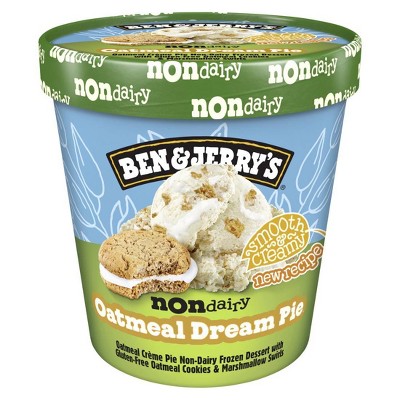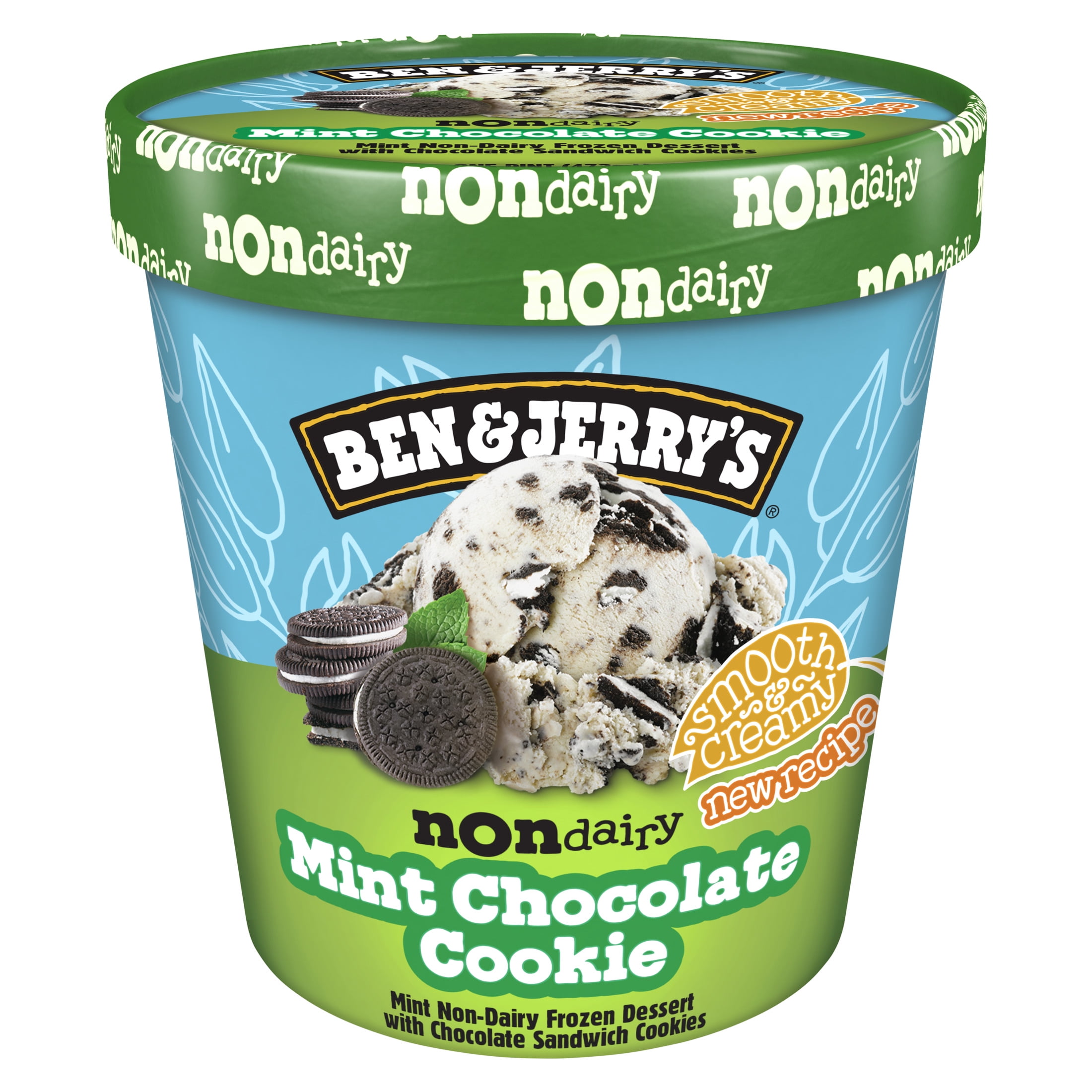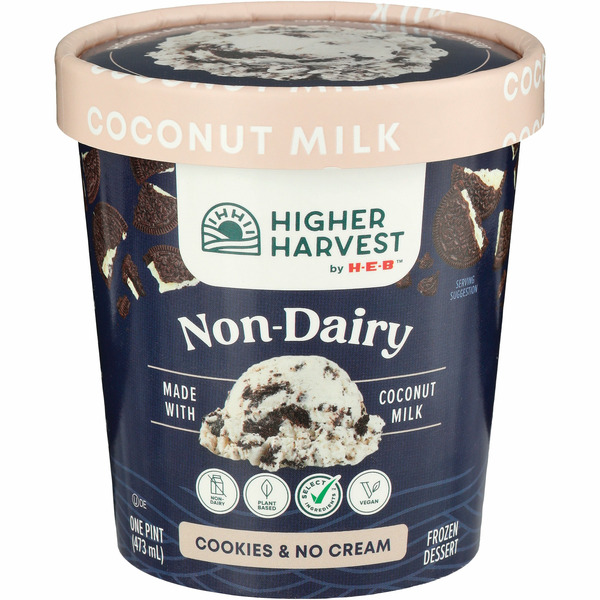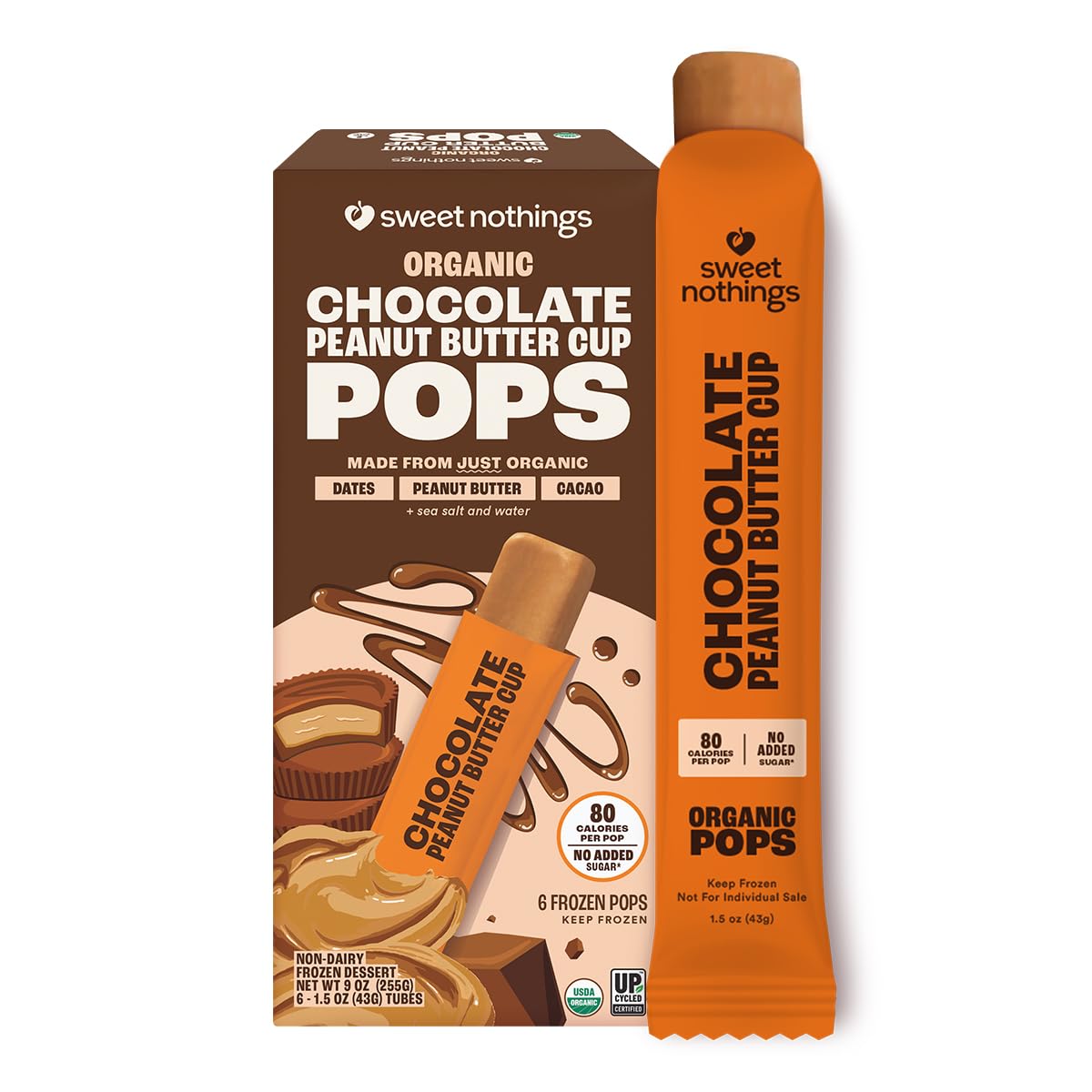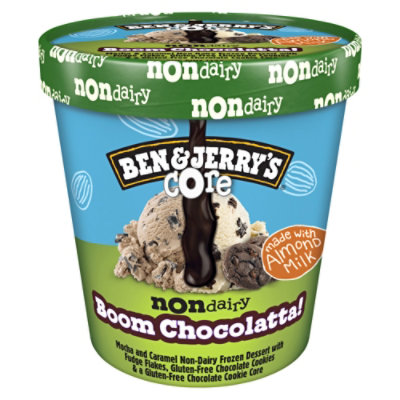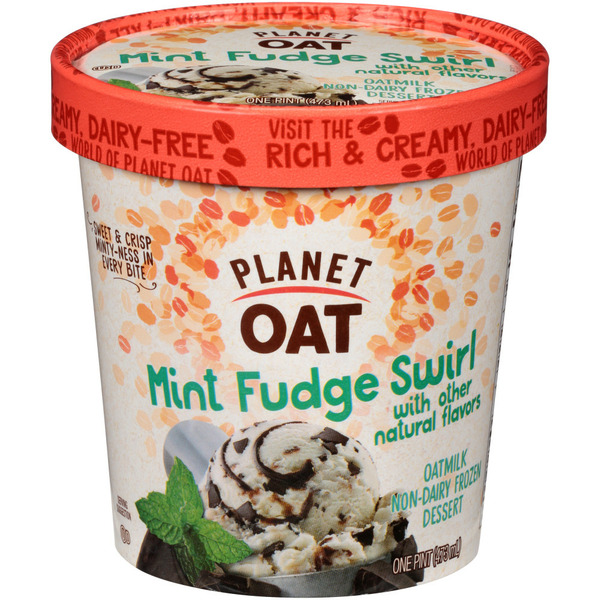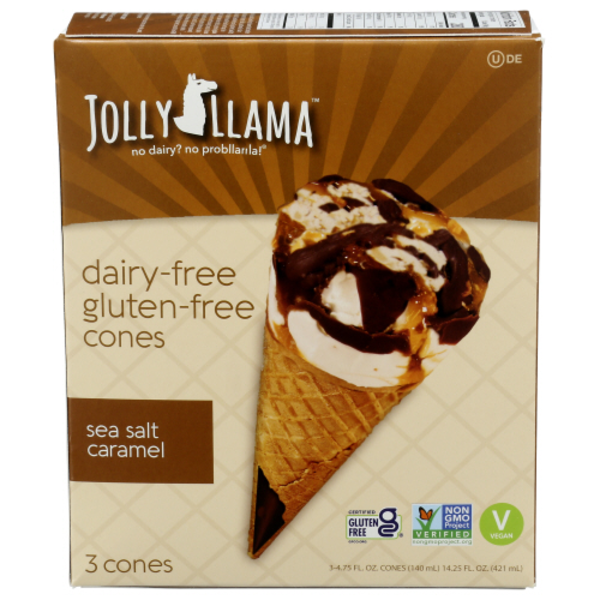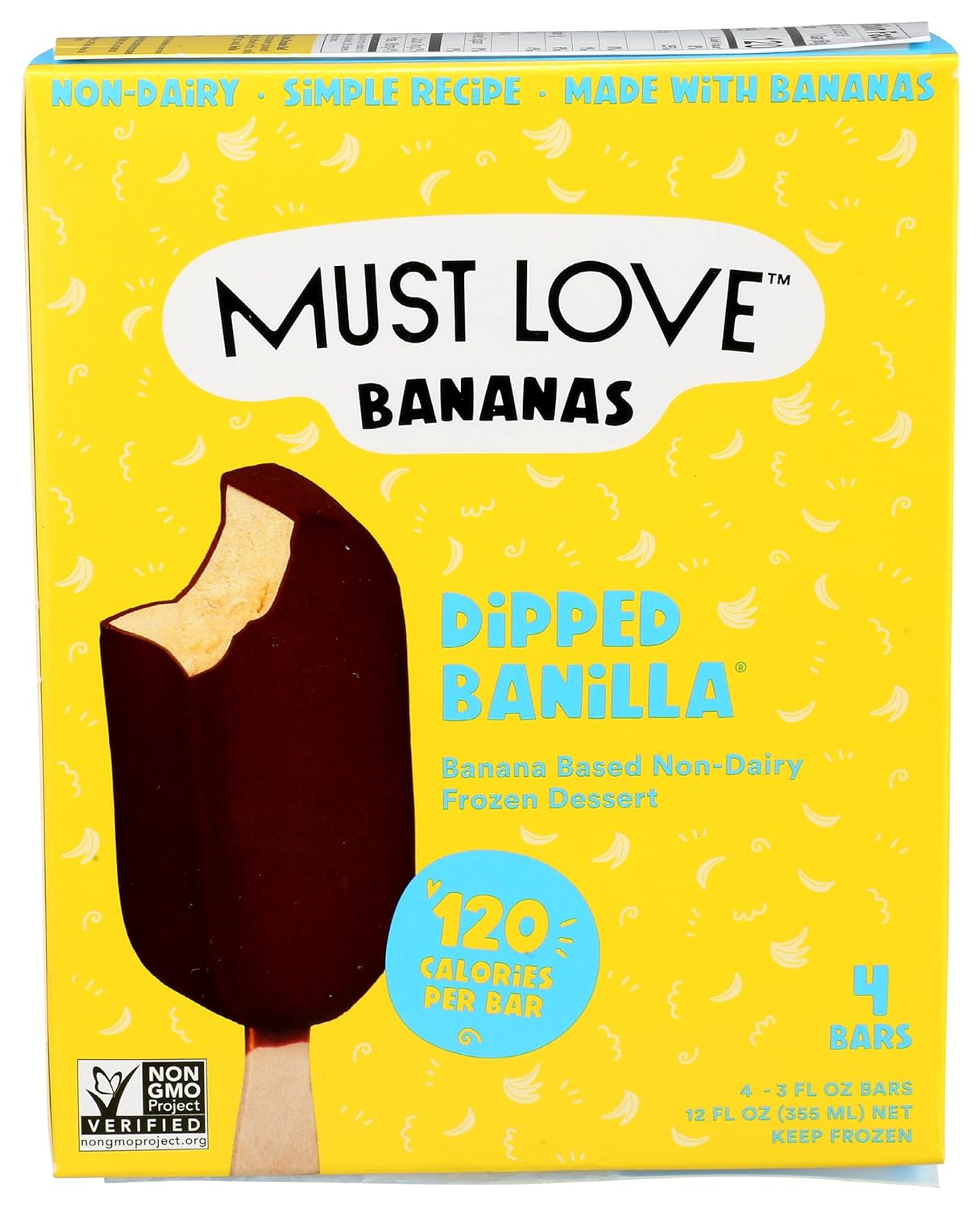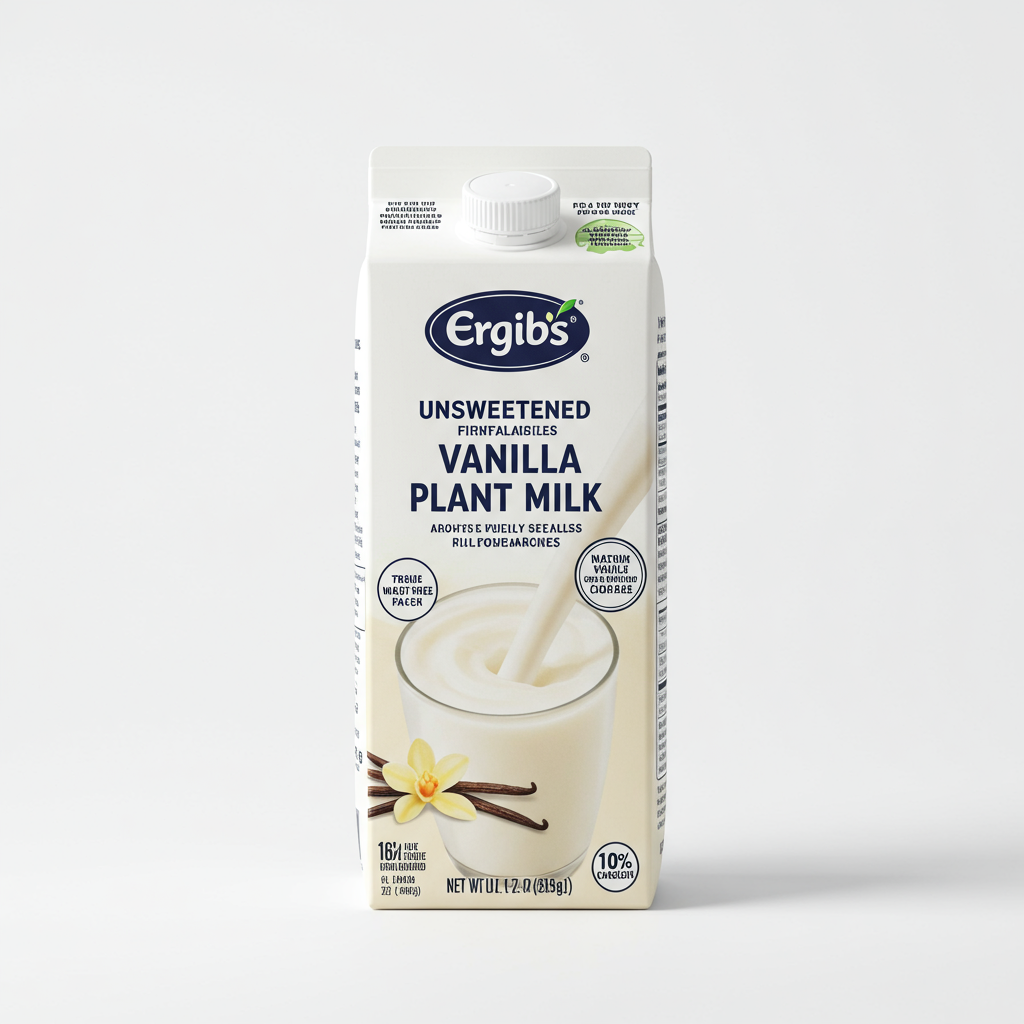DESSERTS
Dairy Free Ice Cream
Dairy free ice cream is a frozen dessert alternative to traditional ice cream, made without any animal-derived ingredients, such as milk or cream. Instead, it is made from a substitute base of plant-based milk, such as almond, soy, coconut, or cashew milk. This alternative offers a delicious and creamy treat that is suitable for those who are lactose intolerant, have dairy allergies, or follow a vegan lifestyle.
Popular among home cooks and consumers, non-dairy ice cream comes in a wide range of flavors, often emulating the classic varieties found in traditional ice cream. Additionally, many commercial brands and recipes focus on using healthier ingredients, while emphasizing sustainability and environmental consciousness.
69%
CARBS
23%
FAT
8%
PROTEIN
259 Dairy Free Ice Cream Products
Non-Dairy Lights Caramel Action! Frozen Dessert
bettergoods Plant-Based Vanilla Oatmilk Non-Dairy Frozen Dessert
Oatmeal Dream Pie Oatmeal Creme Pie Non-Dairy Frozen Dessert With Gluten-Free Oatmeal Cookies & Marshmallow Swirls
Mint Chocolate Cookie Mint With Chocolate Sandwich Cookies Non-Dairy Frozen Dessert
H-E-B Select Ingredients Cookies & No Cream Non-Dairy Frozen Dessert
Sweet Nothings, Chocolate Peanut Butter Cup Organic Dessert Pops, Pack of 6 - No Added Sugar, Dairy-Free, Vegan, Healthy Organic Pops
Ben & Jerry's Non-Dairy Boom Chocolatta® Core Frozen Dessert
Planet Oat Mint Fudge Swirl Non-Dairy Frozen Dessert
Jolly Llama Sea Salt Caramel Cones
Hakuna Banana Frozen Dessert, Dipped Banilla
Dairy Free Ice Cream Is Frequently Used With
Dairy Free Ice Cream FAQ
Much like traditional ice cream, non-dairy ice cream can be enjoyed in a variety of ways, either on its own or as a complement to other desserts. Where people often go wrong with non-dairy ice cream is treating it exactly like traditional ice cream. Due to the absence of dairy, it can freeze harder and may require more thawing time before it reaches a creamy, enjoyable consistency. To get the most out of non-dairy ice cream, make sure it is kept at a constant temperature as frequent temperature changes can negatively affect its consistency.
A less-known fact is that the type of non-dairy milk used can greatly affect the flavor and texture of the ice cream. For a creamier consistency similar to traditional ice cream, using high fat non-dairy milks like coconut milk is the best option. For those keen on experimenting, you can also try other cooking methods like custard-style preparation that involves cooking and chilling the ice cream base before churning.
It's also worth noting that not all non-dairy ice creams are vegan or allergen-friendly. Although they don’t contain dairy, they may contain other allergenic ingredients like nuts or gluten or may use animal-derived additives.
Why is my non-dairy ice cream hard?
Why is non-dairy ice cream not creamy?
Can I make non-dairy ice cream without an ice cream maker?
Is all non-dairy ice cream vegan?
Why does my non-dairy ice cream taste icy?
Can I use any type of non-dairy milk to make ice cream?
Can non-dairy ice cream be flavored just like regular ice cream?
Is non-dairy ice cream healthier than dairy ice cream?
Why is non-dairy ice cream more expensive?
Do I need to thaw non-dairy ice cream before serving?
Expiration & Storage Tips
When does non dairy ice cream expire?
When unopened, non-dairy ice cream can last in the freezer for about 2 to 3 months beyond the sell-by date printed on the package. Once it has been opened, though, it should be consumed within 1 to 2 weeks for best quality, although it will remain safe to eat for quite a bit longer. If frozen, the ice cream also stays in good condition for approximately 2 to 4 months, but it may start to lose its creaminess and flavor beyond that time.
How do you tell if non dairy ice cream is bad?
If your non-dairy ice cream has been off then there are some sure telltale signs you can look for. The ice cream might have a strange odor different from its original fresh smell. It can also develop ice crystals if it’s undergone multiple thaw and refreeze cycles, which while not a sign of spoilage, degrade the texture and taste. If you see discoloration or if the ice cream has hardened to the extent that it's difficult to scoop, it probably has gone bad. Also remember, any visible signs of mold mean the ice cream should not be eaten.
Tips for storing non dairy ice cream to extend shelf life
• Always keep your non-dairy ice cream in the freezer when it's not being served.
• The optimal storage temperature for your non-dairy ice cream is -5°F (-20°C) or colder.
• Store in a tightly sealed container to prevent air exposure and freezer burn. You may even want to place a piece of plastic wrap directly onto the surface of the ice cream before putting the lid on.
• Avoid keeping your non-dairy ice cream in the door of the freezer - it’s the warmest part of the freezer, which could lead to unwanted thawing and refreezing.
• If the ice cream has partially thawed in an environment above 40°F (4°C), don't refreeze it, as it may have become unsafe to eat.
• Avoid consuming the ice cream directly from the tub, as this introduces bacteria and accelerates melting and refreezing.
• To retain the best quality, try to consume the ice cream within the 'best by' date, or within a few weeks of opening.
EXPIRES WITHIN
4 - 6
MONTHS
Equivalents

Chocolate Dairy Free Ice Cream

Strawberry Dairy Free Ice Cream

Vanilla Dairy Free Ice Cream

Coffee Dairy Free Ice Cream

Brownie Dairy Free Ice Cream

Butter Pecan Dairy Free Ice Cream

Caramel Dairy Free Ice Cream

Caramel Chocolate Dairy Free Ice Cream

Cookie Dairy Free Ice Cream
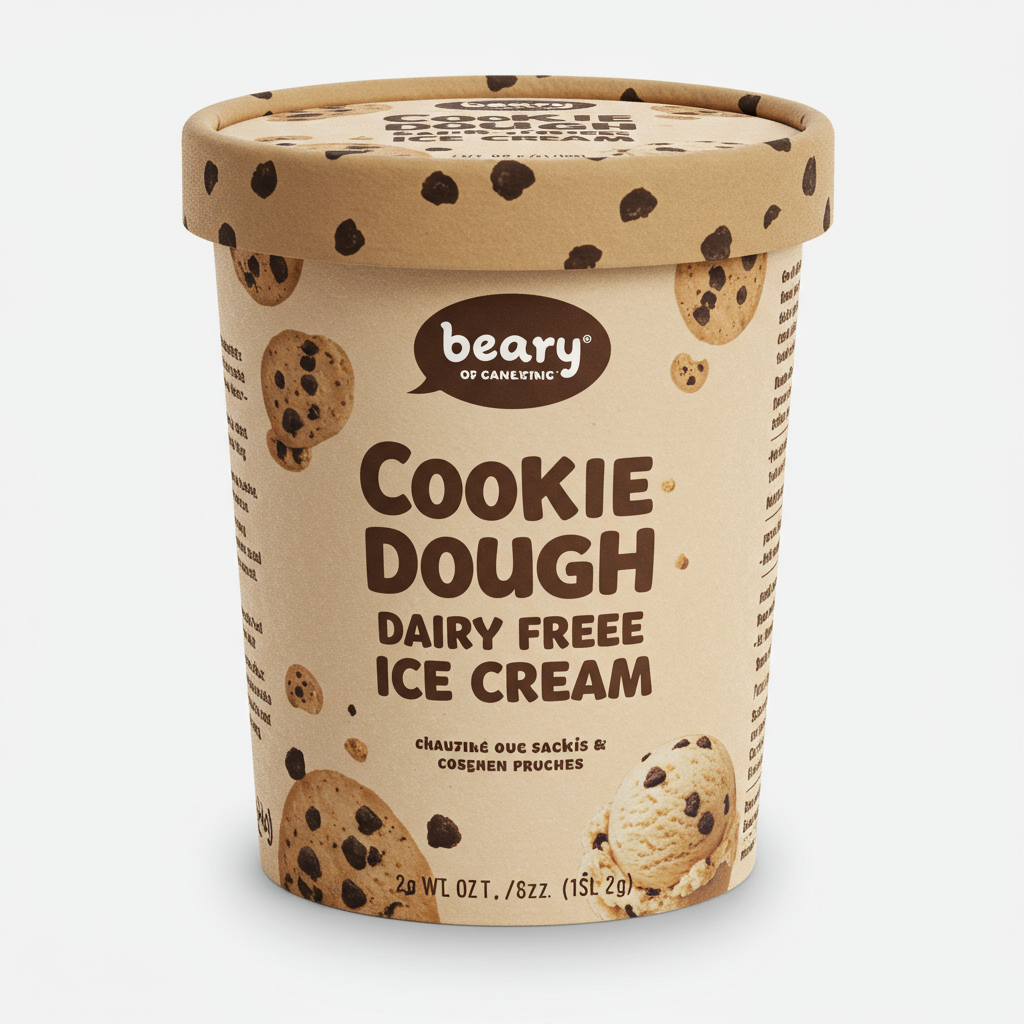
Cookie Dough Dairy Free Ice Cream

Cookies & Cream Dairy Free Ice Cream

Dark Chocolate Dairy Free Ice Cream

Berry Dairy Free Ice Cream
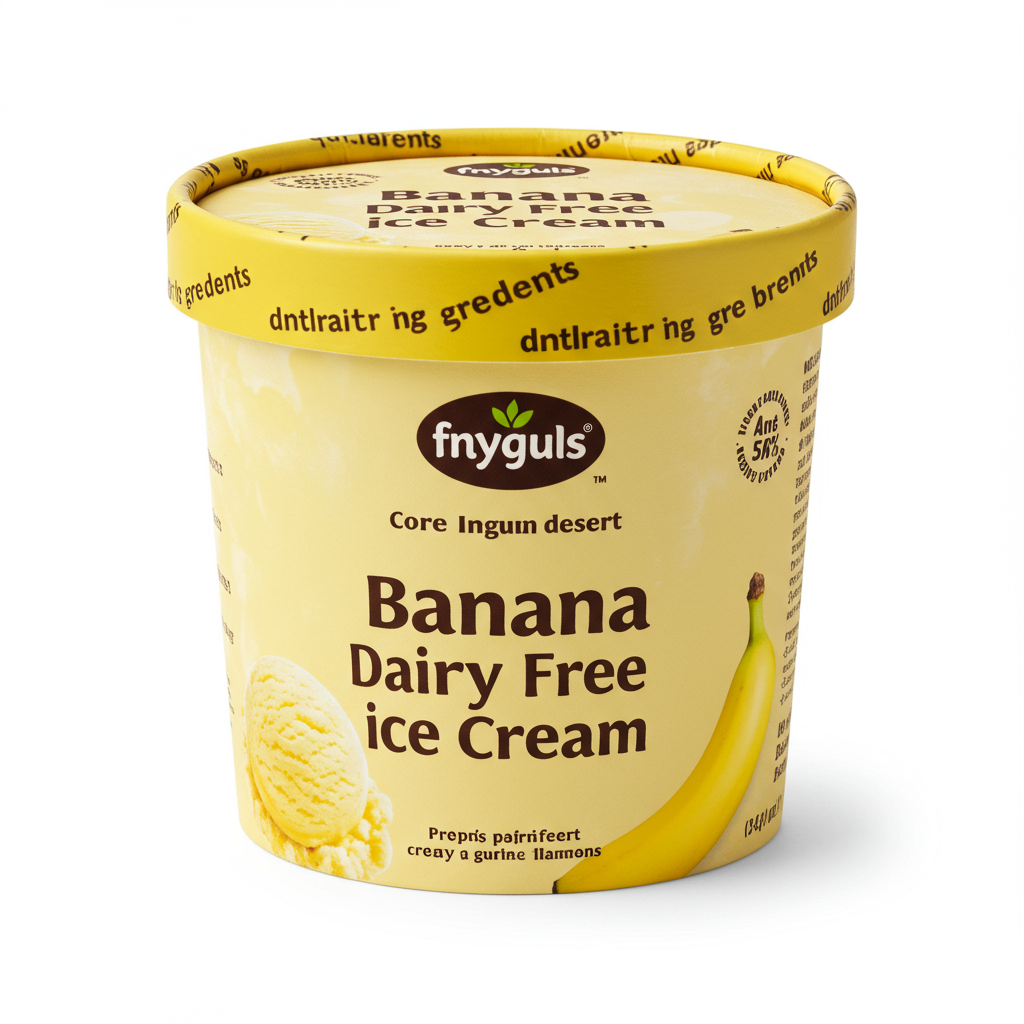
Banana Dairy Free Ice Cream

Cherry Dairy Free Ice Cream

Chocolate Peanut Butter Dairy Free Ice Cream

Mint Chocolate Dairy Free Ice Cream

Cinnamon Dairy Free Ice Cream

Peanut Butter Dairy Free Ice Cream
Substitutes
Health Info
Macros
27g
CARBS
9g
FAT
3g
PROTEIN
Allowed on these diets
LOW FAT
HIGH CALCIUM
VEGETARIAN
VEGAN
GLUTEN FREE
Contains these allergens
MILK

